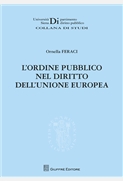On January 6th, 2012, the French Supreme Court for Private and Commercial Matters (Cour de cassation) ruled for the first time on the European Enforcement Order established by Regulation 804/2005.
The issue before the court was whether a European Enforcement Order (EEO) certificate could stand and justify enforcement measures after the certified decision had been set aside in its legal order of origin. The Cour de cassation held that it could not despite the fact the the certificate had not been withdrawn in its legal order of origin.
Facts
The parties were a German couple who had married in 1970 in Germany. They had separated 20 years later. The husband was paying maintenance to his wife. In 2005, she sued before a German court arguing that he was not paying her what he ought to and claiming almost 1 million euros. The husband had moved to France, and thus probably did not hear about the case.
In October 2005, a Stuttgart Court issued a judgment ordering payment of 1 million euros. In January 2006, the same court certified the 2005 judgment as a European Enforcement Order. In December 2006, the wife attached a bank account and a house in France.
It seems that the husband realized at that point what had been going on in Germany. He challenged the German 2005 judgment in Stuggart, which transfered the case to a Court in Mainz. He also sought a stay of the enforcement proceedings in France, that he obtained. In 2007, the Mainz Court found that he owed nothing at all to his wife. She appealed. In 2008, the Court of appeal of Karlsruhe confirmed that she had no claim against her husband.
The husband then petitioned the French enforcement court to lift all enforcement measures carried out in France. The wife argued that this could not be done as long as she would have a valid EEO certificate. The French court disagreed and lifted all enforcement measures. The wife appealed to the Caen court of appeal, and then to the Cour de cassation.
Is the EEO Certificate Autonomous?
The reason why an EEO certificate must be issued is that it will then be the title used by enforcement authorities abroad to enforce the certified judgment. One could argue, therefore, that enforcement authorities in Europe should only be concerned with the EEO certificate.
In many of its provisions, the EEO Regulation provides that certificates wrongly issued must be withdrawn by the court of origin (see, eg, Article 10). Article 6 of the EEO Regulation even provides so for cases when the certified decision has ceased to be enforceable.
6.2 Where a judgment certified as a European Enforcement Order has ceased to be enforceable or its enforceability has been suspended or limited, a certificate indicating the lack or limitation of enforceability shall, upon application at any time to the court of origin, be issued, using the standard form in Annex IV.
One possible interpretation of these provisions could be that certificates only stop producing their effects when they are withdrawn, and that they stand autonomously until this happens.
Another interpretation, however, is that EEO certificates only facilitate the circulation of judgments, and they are therefore not autonomous. If such judgments disappear, they cannot stand anymore.
This interpretation is seemingly endorsed by the Cour de cassation, which relies on the following provision:
Article 11 Effect of the European Enforcement Order certificate
The European Enforcement Order certificate shall take effect only within the limits of the enforceability of the judgment.
The Court rules that the EEO certificate could thus not found enforcement measures in France after the German court of appeal had ruled that the German certified judgment was not enforceable anymore. Existing enforcement measure had to be lifted.
Liability
The French lower courts had also held the wife liable for abuse of process. The Cour de cassation confirms the liability of the holder of the certificate, who is found to have committed a wrong for continuing to enforce the certificate after the German court of appeal had finally ruled that the wife had no claim against her husband.
In France, creditors seeking to enforce EEO certificates after the underlying judgment has been finally set aside are thus committing a wrong.
 The last issue of the Revue critique de droit international privé was just released. It contains two articles addressing private international law issues and several casenotes. The table of contents can be found
The last issue of the Revue critique de droit international privé was just released. It contains two articles addressing private international law issues and several casenotes. The table of contents can be found 